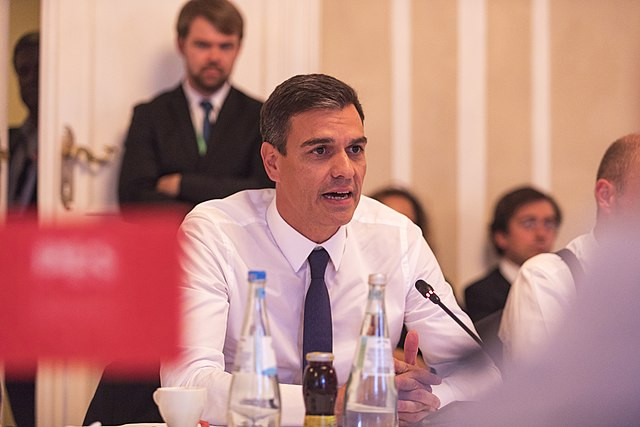Spanish Prime Minister Pedro Sánchez announced his decision to continue leading the government "with more force if possible," following a five-day period of reflection prompted by a corruption complaint against his wife, Begoña Gómez. The complaint, filed by the far-right-linked organization Manos Limpias (Clean Hands), alleged influence peddling and business corruption.
Sánchez, a socialist who has been in office since 2018, vowed to fight against what he termed "unfounded" attacks, which he blamed on conservative and far-right forces. "I act on clear conviction. Or we say enough of this degradation or it will condemn us as a nation," he said, emphasizing that the issue was not ideological but a matter of dignity and societal definition.
The prime minister's decision came after the Madrid regional Superior Court of Justice launched a probe against Gómez based on the Manos Limpias complaint. Prosecutors, however, presented an appeal to the judge, asking him to shelve the case, stating that they did not find indications of a crime that would justify opening a probe against Gómez.
Sánchez thanked his Spanish Socialist Party members for their support, with an estimated 12,500 people rallying around the party headquarters in Madrid on Saturday and another 5,000 supporters gathering at the Spanish parliament on Sunday, according to government estimates. "If he quits, democracy loses. If he resigns, everything we have fought for goes away - not just the social advances we've achieved in this country and the advances for the LGBTI community and for all groups with needs that have problems. No, democracy in general loses," one demonstrator told CNN.
Despite forming a new coalition with a narrow parliamentary majority and being sworn in for a four-year term in November 2023, Sánchez's government has faced challenges at home. While implementing a progressive agenda, including policies on women's rights and a euthanasia law, the pace of change has led to a backlash in some parts of Spain, as has his openness to working with separatist parties amidst worries over the breakup of the country.
Nagore Calvo Mendizabal, a senior lecturer in Spanish and European politics and society at King's College London, suggested that Sánchez's decision could be "another of his political maneuvers" and that it could benefit him by whipping up support nationally in the battle against attacks from the right. However, the Popular Party, the leading opposition conservative party, criticized Sánchez's behavior as frivolous, adolescent, and unbecoming of a European leader, calling the decision a tactical ploy to whip up support for electoral purposes.






